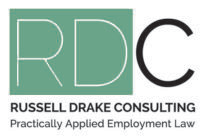With the “Winston Handbrake” now released we can expect significant changes to Employment Law to be a priority for the new Labour Government.
Many changes proposed in the first term of the Labour led coalition Government were unable to be progressed due to having insufficient numbers to pass these into law. However, with a clear majority we can now expect the demands of the Unions to be given significantly more weight.
Key changes likely to occur in the next 12 – 24 months will include:
- Increases in the Minimum Wage – The previously advised increase to $20.00 per hour on 1 April 2021 is now a certainty. However, do not expect this to be the end of the minimum wage debate, with it being highly likely that the Living Wage (currently $22.10 per hour) will become the default rate in the not to distant future.
- Increase in Sick Leave Entitlements – With the review of the Holidays Act 2003 commenced in the first term, it is well expected that the minimum sick leave entitlement for full time employees will be increased to 10 days per annum. We may however see a retention of the current five days per annum for part time employees (less than 30 hours per week).
- Change to the method of Calculating Leave Payments – The Government Working Group has already provided recommendations on the proposed changes to remove the ambiguity that exists between Average Daily Rate, Relative Daily Rate and Ordinary daily rate. We are uncertain as to what the final calculation model will be, however this is likely to be a positive step for employers given the confusion and errors occurring with the existing provisions.
- Introduction of Fair Pay Agreements – This is a certainty as it has long been a cry of the Unions. Fair Pay Agreements (FPA) are likely to set the minimum hourly rate and allowances for many waged employee sectors. Likely industries to see a FPA first may include; security, hospitality, cleaning, drivers and care workers (replacing the current Pay Equality Scale which expires on 31 July 2021).
- Abolition of Youth Rates – This may align to the introduction of Fair Pay Agreements to ensure youth workers are paid the equivalent rate as an adult employee doing the same work.
- Redundancy Compensation – Another traditional call by the Unions is likely to see compulsory redundancy compensation become a legislative provision within the next few years. Although we have no specific details of any proposed legislation, expect this to be aligned to the typical Collective Agreement provisions of two or four weeks wages for the first full year of service and an additional two weeks for each completed year thereafter up to a maximum of six, eight or ten weeks.
- Protection for Dependant Contractors – These being contractors who derive the majority of their income from one source/company with it being likely that they will be entitled to paid sick leave and the ability to bargain for, or being included within a collective agreement, (and the wage rates, allowances and leave entitlements that come with that).
- Increase in Public Holidays – Labour campaigned on adding Matariki as an additional Public Holiday with this likely to increase the total public holidays to 12 each year.
- Removal of 90 Day Trial Provisions – Winston was the only reason that they continue to exist currently so expect these to disappear on the first available opportunity.
- Increase in the number of Labour Inspectors – A renewed focused on ‘enforcement’ is expected to see a significant increase in the number of Labour Inspectors being employed by MBIE to ensure minimum legal entitlement obligations are being complied with.
When these changes are finally announced, they will need to be reflected within all forms of employment agreements. We will therefore keep you well advised as confirmed information emerges from Parliament.
If you have any questions regarding any of the proposed changes, please feel free to contact us directly.

